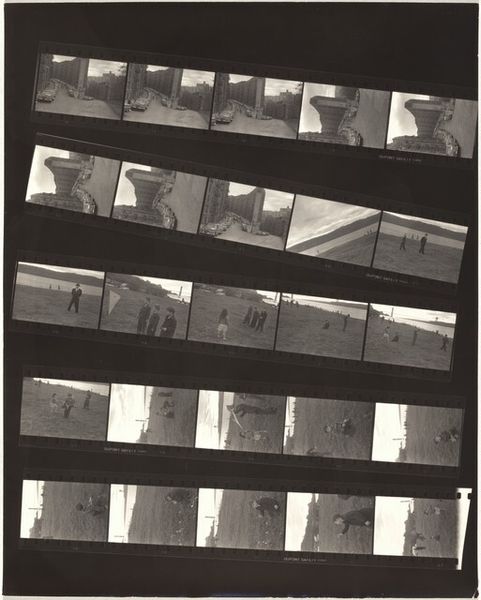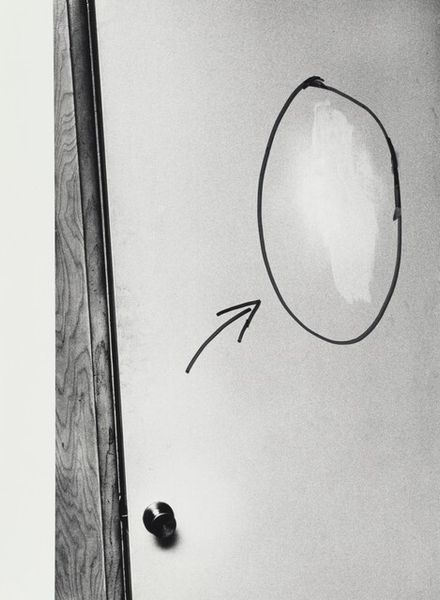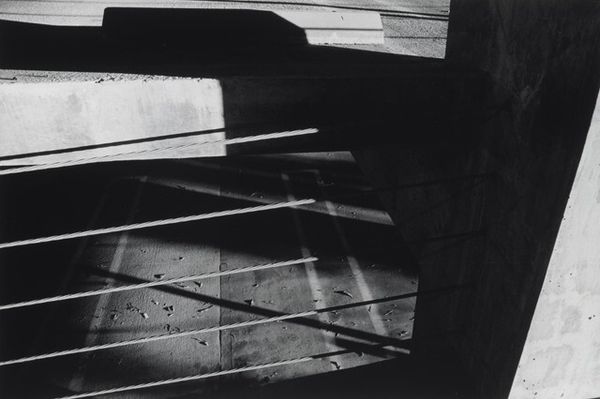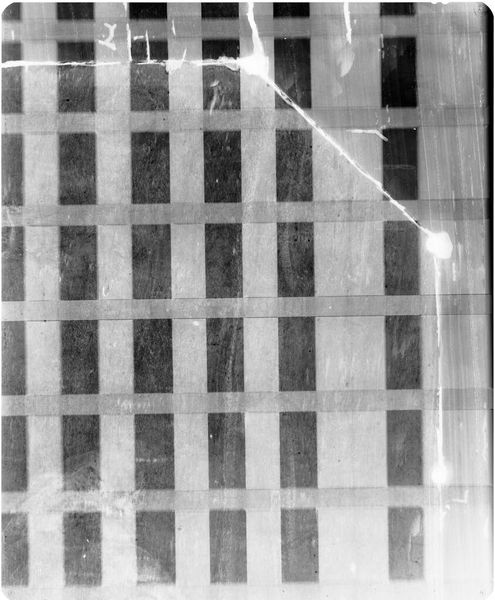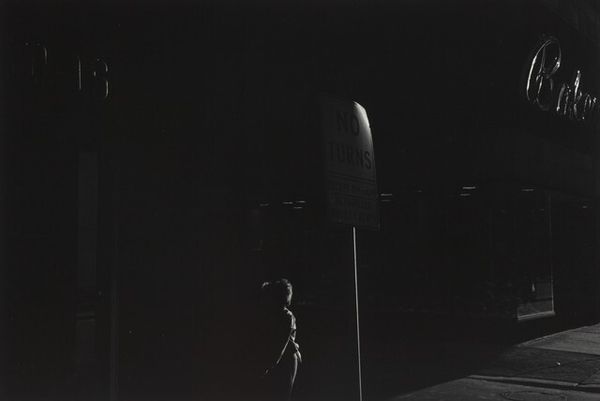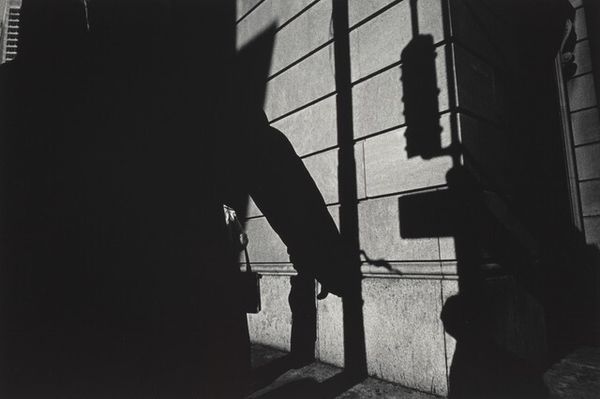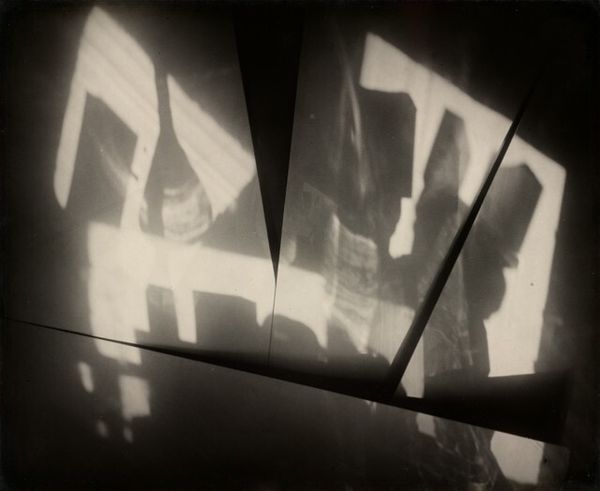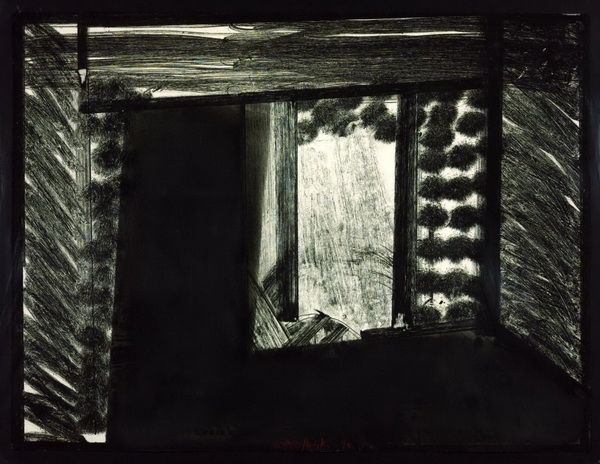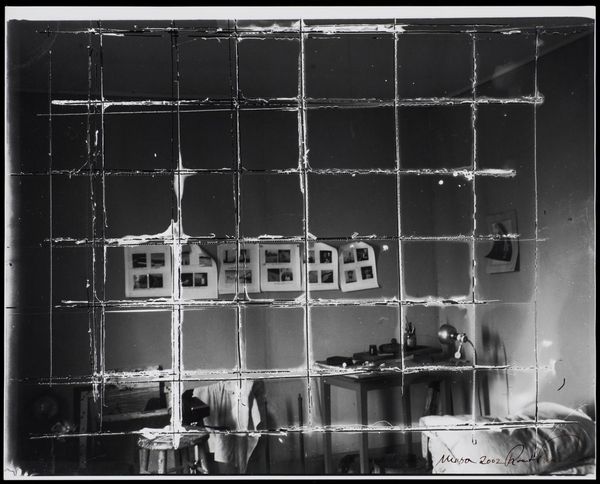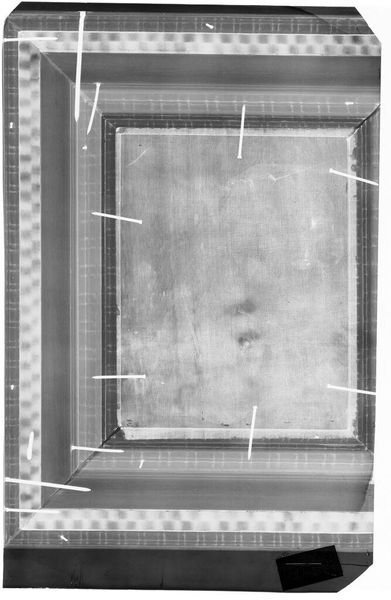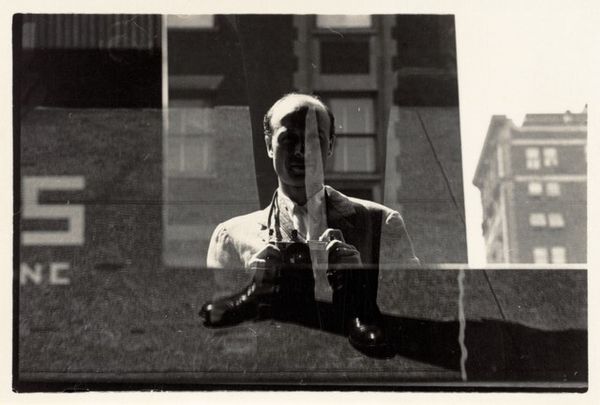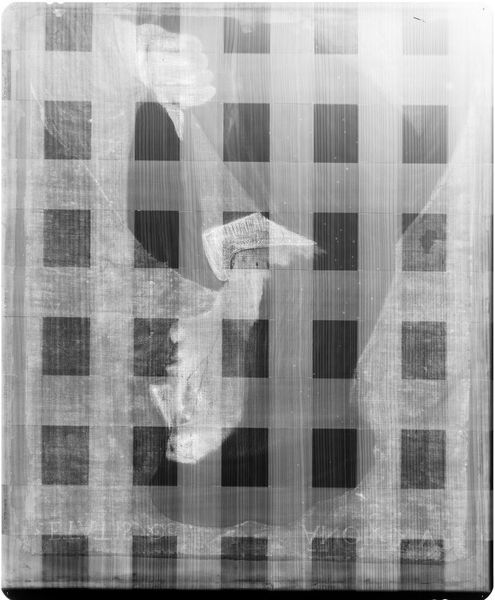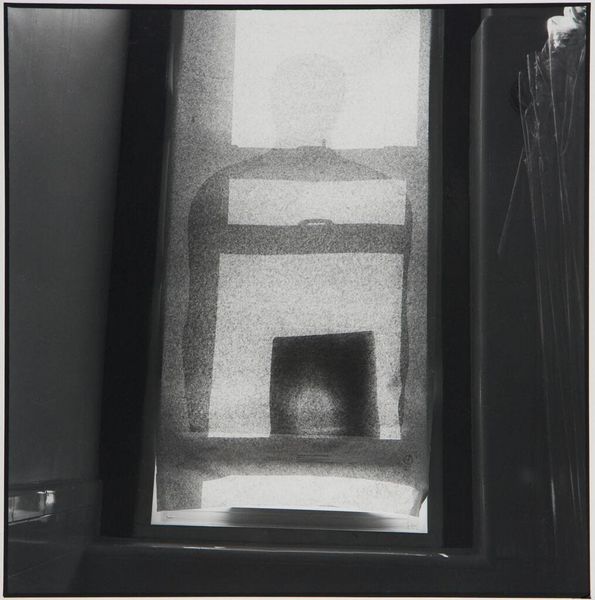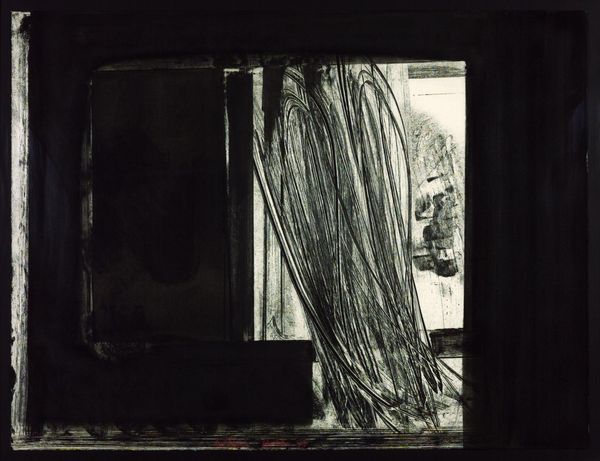
photography, gelatin-silver-print
#
black and white photography
#
landscape
#
black and white format
#
street-photography
#
photography
#
black and white theme
#
black and white
#
gelatin-silver-print
#
monochrome photography
#
cityscape
#
monochrome
#
monochrome
Dimensions: image: 20.8 × 14.1 cm (8 3/16 × 5 9/16 in.) sheet: 25.5 × 17.7 cm (10 1/16 × 6 15/16 in.)
Copyright: National Gallery of Art: CC0 1.0
Curator: Glimpsed through what seems to be a snow-streaked window, we have "Carroll Street, Brooklyn, New York," a 1969 gelatin-silver print by David Vestal. It has the look of a ghostly dreamscape. Editor: My first impression is one of confinement, almost voyeuristic. A huge, dark orb dominates the foreground. I feel boxed in with an overwhelming feeling of detachment from that snow-covered scene outside. Curator: That orb is quite prominent, isn’t it? Almost eclipsing the exterior world. Yet, it could be that Vestal wanted to focus our gaze, perhaps drawing our attention to the act of looking, to the way we frame the world around us. It gives this photo a certain self-awareness. The act of witnessing this city is like watching a drama through the camera lens. Editor: Framing is key here. We’re literally seeing the world outside through the frame of a window. I'm thinking about theories of urban alienation prevalent in the late '60s and the political climate in New York City at the time. The dense concentration of urban living, paired with increasing social and political tensions, created a sense of distance and disaffection. Even physical barriers seemed to further cement a sense of isolation and perhaps Vestal felt it best to capture these scenes with those themes in mind. Curator: Absolutely. You can sense the city holding its breath outside that window. There's also a poetic quality here – the falling snow, the fire escapes, and that single dark shape dominating our vision. It gives me the impression that what Vestal wants to do with this photograph, at its best, is present the beautiful, melancholic side of big cities in all of their glory, as a source of urban dread, but perhaps also a reason to stay a part of the action as it occurs. Editor: This could serve as commentary of public safety, particularly in urban, working-class environments during that period in NYC, with questions around whose needs were being addressed, and whose weren't. Fire escapes themselves speak volumes about regulation and the realities of many people's existence back then. They were really built for safety, but sometimes safety is the one thing most lacking. The photo subtly suggests that, yes, you might get saved by the staircase on a building, but you are not being protected either way if you’re living with fire hazards in your community. Curator: Such a potent reading. Vestal's work here reminds us that art is so often a quiet mirror reflecting unspoken truths, inviting us to truly witness, not just to see. Editor: Indeed, and it reminds us to question not only what we are shown but also who is afforded the luxury to look away.
Comments
No comments
Be the first to comment and join the conversation on the ultimate creative platform.
